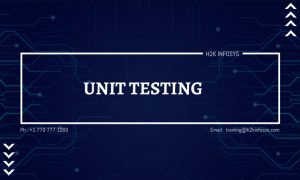Introduction
Automation testing has revolutionized the software testing landscape, bringing speed, efficiency, and precision to quality assurance processes. As businesses aim for faster product delivery cycles without compromising quality, automation has become the go-to solution. However, like any powerful tool, it comes with its own set of challenges.
In this blog, we will delve into the benefits and risks of automation testing, offering a balanced perspective for QA professionals and teams. Whether you’re an experienced tester or new to the field, this guide will provide actionable insights. If you’re considering enhancing your skills through QA testing training, understanding automation testing is vital for your career growth.
Why Automation Testing is a Game-Changer
Manual testing is labor-intensive and prone to human error, making it unsuitable for large-scale or repetitive tasks. Automation testing fills this gap, leveraging tools and frameworks to execute tests efficiently and accurately.
With automation testing, QA teams can:
- Save time by running tests faster.
- Improve accuracy by eliminating human error.
- Focus on complex, exploratory testing rather than repetitive tasks.
Despite these advantages, automation testing is not without risks. Balancing the benefits with potential drawbacks is crucial for successful implementation.
Benefits of Automation Testing
1. Enhanced Testing Efficiency
Automated tests execute faster than manual tests, enabling teams to complete testing cycles in less time.
- Example: A login feature that requires multiple input validations can be tested across various scenarios within minutes using automation tools like Selenium.
2. Improved Accuracy
Automation eliminates the risk of human error, ensuring consistent test execution.
- Example: When performing regression testing, automated scripts ensure no functionality is inadvertently broken due to updates.
3. Cost Savings in the Long Run
While te initial setup of automation testing may be costly, it reduces manual labor and operational costs over time.
- Example: Automated testing scripts can be reused for similar projects, saving resources.
4. Scalability
Automation testing is highly scalable, making it ideal for large applications with extensive testing requirements.
- Example: E-commerce platforms with thousands of products rely on automated scripts for price validation and inventory updates.
5. Continuous Testing in CI/CD Pipelines
Automation testing integrates seamlessly with Continuous Integration and Continuous Deployment (CI/CD) pipelines.
- Example: Tools like Jenkins trigger automated tests after each code commit, ensuring issues are detected early in the development cycle.
6. Enhanced Test Coverage
Automation allows testers to write extensive test cases covering all application functionalities, including edge cases.
- Example: Mobile app testing for various screen resolutions and device compatibility is easier with tools like Appium.
7. Reusability of Test Scripts
Test scripts can be reused across multiple projects or modules with minor modifications.
- Example: A script validating user authentication can be reused in different applications.
Risks of Automation Testing
1. High Initial Investment
The initial setup cost for automation testing can be substantial, requiring tools, infrastructure, and skilled professionals.
- Example: Advanced tools like TestComplete may require significant licensing fees.
2. Limited to Predictable Scenarios
Automation testing is unsuitable for scenarios requiring human intuition, such as exploratory testing.
- Example: Identifying usability issues in a user interface often requires manual intervention.
3. Maintenance Overhead
Automated scripts require regular updates to align with changes in application functionalities.
- Example: Frequent UI updates may render existing scripts obsolete, requiring modification.
4. False Sense of Security
Relying solely on automation may lead teams to overlook critical manual testing areas.
- Example: A script validating basic functionality might miss nuanced issues, like inconsistent behavior across different operating systems.
5. Steep Learning Curve for New Teams
Automation testing demands programming knowledge, making it challenging for teams without technical expertise.
- Example: Testers transitioning from manual testing may struggle with scripting in tools like Selenium or JUnit.
6. Tool Limitations
No tool is a one-size-fits-all solution. The chosen tool might lack features critical for a specific project.
- Example: A tool optimized for web applications might be inadequate for testing complex APIs.
Real-World Examples of Automation Testing Success
Case Study 1: Banking Sector
A leading bank implemented automation testing for its mobile banking app.
- Benefits: Reduced testing time by 60%, improved app reliability, and identified critical bugs during development.
Case Study 2: E-Commerce Platform
An online retailer automated its inventory and checkout testing processes.
- Benefits: Reduced cart abandonment rates and ensured seamless user experience across platforms.
How to Minimize Risks in Automation Testing
- Start Small: Begin with automating high-priority and repetitive tasks before scaling.
- Choose the Right Tool: Evaluate tools based on project requirements and team expertise.
- Invest in Training: Provide comprehensive QA testing training to ensure teams can leverage tools effectively.
- Combine Manual and Automated Testing: Use automation for predictable tasks and manual testing for exploratory scenarios.
- Regular Script Maintenance: Update scripts to reflect changes in the application.
The Future of Automation Testing
The field of automation testing is evolving rapidly, driven by advancements in technology and changing industry demands. The future of automation testing promises innovations that will enhance efficiency, adaptability, and accuracy. Let’s explore what lies ahead for this critical domain.
1. AI-Powered Testing
Artificial Intelligence (AI) is poised to revolutionize automation testing by enabling smarter and more efficient testing processes.
- Self-Healing Scripts: AI will enable test scripts to automatically adapt to changes in the application, such as UI updates or modified workflows. This reduces the need for frequent script maintenance.
- Predictive Analytics: AI tools will predict areas of an application most likely to fail, allowing testers to focus on high-risk functionalities.
- Automated Test Case Generation: Machine learning algorithms can analyze historical data to generate optimized test cases.
2. Increased Integration with CI/CD Pipelines
Continuous Integration and Continuous Deployment (CI/CD) pipelines rely heavily on automation testing for early bug detection and faster releases.
- Shift-Left Testing: QA processes will be integrated earlier in the development lifecycle, reducing the time and cost of defect resolution.
- Continuous Testing: Automation tools will support real-time testing as code is developed, ensuring quality at every stage.
3. Cloud-Based Testing
Cloud computing is becoming a cornerstone of automation testing, offering scalability and flexibility.
- Cross-Platform Testing: Cloud-based tools like BrowserStack and Sauce Labs will enable testing across multiple devices, operating systems, and browsers simultaneously.
- Resource Optimization: Teams can leverage virtual environments to simulate real-world conditions without investing in expensive hardware.
- Global Collaboration: Cloud platforms allow distributed teams to collaborate seamlessly.
4. Enhanced Collaboration Through Low-Code Tools
Low-code and no-code platforms are making automation testing more accessible to non-technical users.
- User-Friendly Interfaces: Tools like TestProject and Katalon Studio allow testers to create and manage automated tests without extensive coding knowledge.
- Collaboration Between QA and Dev Teams: These tools bridge the gap between technical and non-technical team members, fostering better collaboration.
5. Focus on Security Testing Automation
As cyber threats grow, the integration of security testing within Automation frameworks is becoming critical.
- DevSecOps Practices: Automation tools will incorporate security checks within the CI/CD pipelines to identify vulnerabilities early.
- AI-Driven Security Tools: AI will enhance the ability to detect sophisticated security threats during automated testing.
6. Adoption of Blockchain for Testing
Blockchain technology is being explored for its potential to enhance testing accuracy and transparency.
- Immutable Logs: Blockchain can create immutable records of test executions, ensuring data integrity.
- Smart Contract Testing: Automated tools will focus on validating blockchain-based smart contracts for functionality and security.
7. Automation in API and Microservices Testing
With the rise of microservices architecture, API testing is becoming a critical component of automation.
- API Testing Tools: Tools like Postman and RestAssured are evolving to support more complex scenarios and integrations.
- Service Virtualization: Automation tools will simulate dependent services to enable seamless testing of microservices-based applications.
8. Increased Emphasis on Performance Testing
Performance testing is gaining prominence as applications need to handle high traffic and deliver consistent user experiences.
- Real-Time Load Testing: Automation tools like JMeter will integrate real-time monitoring to identify performance bottlenecks.
- Scalability Testing: Cloud-based tools will enable scalable performance testing for applications with dynamic user loads.
9. Automation Testing for IoT and Wearables
The Internet of Things (IoT) and wearable devices bring new challenges and opportunities for automation testing.
- Device Simulation: Automation tools will simulate real-world IoT environments to test device interactions and performance.
- End-to-End Testing: Tools will focus on validating the entire ecosystem, including devices, applications, and networks.
10. Ethical AI Testing
As AI becomes integral to applications, ethical testing will emerge as a priority.
- Bias Detection: Automation tools will help identify and mitigate bias in AI algorithms.
- Fairness Testing: QA teams will ensure AI-driven systems deliver unbiased and equitable outcomes.
Preparing for the Future
To stay competitive in the evolving QA landscape, testers need to adopt new skills and tools. Here’s how you can prepare:
1. Continuous Learning
- Enroll in QA testing training to stay updated on the latest tools and trends.
- Explore specialized courses focusing on AI, API, and performance testing.
2. Hands-On Practice
- Use open-source tools to practice new techniques.
- Participate in real-world projects or simulations.
3. Collaboration Skills
- Foster collaboration with developers, product managers, and other stakeholders.
- Use tools that encourage teamwork and transparency.
Key Takeaways
- Automation testing offers unparalleled efficiency, accuracy, and scalability for QA processes.
- It comes with risks like high initial costs and maintenance overheads, which can be mitigated through strategic planning.
- Combining automation with manual testing ensures comprehensive coverage.
- Investing in QA software training equips teams to maximize the potential of automation testing tools.
The automation testing is to perform the test steps automatically with different data sets and observe the results. There are several automation testing tools commercialised by the organisations. There are benefits and risks of automation testing.
The benefits and risks of automation testing is to be considered to make choice between manual testing and automation testing. The software testing requirements are also to be taken into account to make choice between the two software testing ways.
Conclusion
The future of automation testing is exciting, filled with possibilities for innovation and growth. By embracing advancements like AI, cloud-based tools, and security testing, QA professionals can remain indispensable in the software development lifecycle.
At H2K Infosys, we empower QA professionals with industry-relevant skills through our QA software training programs. Enroll today to stay ahead of the curve and shape the future of quality assurance!





























81 Responses
Categories – Manual and automation.
Purpose – manual testing – for simple projects where the input and output data is been maintained manually on excel sheets.
Automation testing – this are used for complex projects as they are repetitive in nature also modifications can be done often as per the requirements.
The two main categories of testing are Manual and Automation. Both are used to find defects in software so the clients requirements are met.
List the different categories of software testing tools and explain their purpose in one sentence.
1. Load testing
It is based on Users. Test the performance of software with different numbers of users And identify the
maximum number of users supported by software.
2. Browser compatibility testing
Test compatibility of the software with specific Browser.
3. System testing/External Interface testing.
Test interface between two independent software.
The different categories of software testing tools are:
1. Functional and Regression test tools to test each functionality of the software in detail and in depth with different steps and data. Ex: micro focus UFT, IBM Rational Functional Tester, Selenium, Cucumber etc.
2. Performance test tools are used to test the performance of the software such as load testing, volume testing, stress testing and soak testing. Ex: LoadRunner, JMeter, WebLoad etc.
3. Mobile test tools are used for testing mobile software applications. Ex: Appium, Silk Mobile
4. Test management tools are used for requirements management, test case design, test execution and defect management. Ex: ALM/Quality Center, QAComplete, Jira etc
5. Defect management tools are those used specially for defect management, which is a part of test management. Ex: Bugzilla, IBM Rational ClarQuest, BugHost etc
Different category of software testing tools are
1. Functional and Regression Test tools
Eg- Selenium ,UFT,IBM Rational functional Tester
2.Performance Test tools
Eg- LoadRunner,JMeter,Silk Performer
3.Mobile testing tools
Eg-Appium,Silk Mobile
4.Test Management Tools
Eg-HP ALM/QC ,JIRA ,QAComplete
5.Defect Management Tools
Eg-Bugzilla,Mantis,BugHost
UFT -Use a single GUI for automating all types of functional testing. This visual experience helps you create automated testing for both GUI functionality and the back-end service (application business logic) parts of an application.UFT /QTP uses VBScript language to write Test Scripts and it supports MS Windows operating Environmental only.
Selenium- is a portable software-testing framework for web applications. Selenium provides a playback (formerly also recording) tool for authoring tests without the need to learn a test scripting language (Selenium IDE).
IBM Rational Functional Tester -is an automated functional testing and regression testing tool. This software provides automated testing capabilities for functional, regression, GUI and data-driven testing.
List the different categories of software testing tools and explain their purpose in one sentence.
1. Selenium
Selenium is a testing framework to perform web application testing across various browsers and platforms like Windows, Mac, and Linux.
2.2. TestingWhiz
TestingWhiz is a test automation tool with the code-less scripting by Cygnet Infotech, a CMMi Level 3 IT solutions provider.
3. HPE Unified Functional Testing (HP – UFT formerly QTP)
HP QuickTest Professional was renamed to HPE Unified Functional Testing. HPE UFT offers testing automation for functional and regression testing for the software applications.
4. TestComplete
TestComplete is a functional testing platform that offers various solutions to automate testing for desktop, web, and mobile applications by SmartBear Software.
5. Ranorex
Ranorex Studio offers various testing automation tools that cover testing all desktop, web, and mobile applications.
6. Sahi
Sahi is a testing automation tool to automate web applications testing. The open source Sahi is written in Java and JavaScript programming languages.
Different category of software testing tools are
1. Functional and Regression Test tools – Selenium ,UFT, IBM Rational functional Tester
2.Performance Test tools – Load Runner, JMeter, Silk Performer
3.Mobile testing tools – -Appium, Silk Mobile
4.Test Management Tools -HP ALM/QC ,JIRA
5.Defect Management Tools – Bugzilla,Mantis,BugHost
Selenium, UFT
Test Management Tool
These tools help organize the end to end test Cycle
Load Testing Tools
These tools help performance/load test a site or application.
Automated Testing Tools
This category of tools helps automate functional and Regression Testing of your application under test.
Defect Tracking Tools
This category of tools help in defect/bug management.
Mobile Testing Tools
These tools help to automate testing of your Android or iOS applications.
Cross-browser Testing Tools
This category of tool help in Cross Browser Testing of your site across Chrome, Firefox, IE, Edge, Safari, and other browsers.
API Testing Tools
These tools help in testing REST/SOAP protocols
Security Testing Tools
These tools detect security vulnerabilities in your Application Under Test.
CSS Validator Tool
It is a free software developed by the W3C to help Web designers and Web developers to check their CSS. With the help of this validation tool. It also helps users to find errors or incorrect uses of CSS.
Ans. : The different categories of software testing tools & their purpose are:
• Webload: WebLoad is an excellent testing tool which offers many powerful scripting capabilities, that is helpful for testing complex scenarios.
• Selenium: Selenium is the most popular automated testing tool. It specifically designed to support Automation Testing of functional aspects of web based applications, wide range of platforms and browsers.
• Quick Test Professional (QTP): QTP is an automated functional GUI testing tool which allows the automation of user actions on a web or client based computer application. It is widely used for functional regression test automation. It uses a scripting language to manipulate the objects and controls of the application under test.
• Unified Functional Testing (UFT): Unified Functional Testing tool has advanced image-based object recognition feature, reusable test components, and automated documentation.
1. List the different categories of software testing tools and explain their purpose in one sentence.
Ans. Selenium is used to perform web application testing across various browsers and platforms like Windows, Mac, and Linux.UFT tool has advanced image-based object recognition feature, its used for automated documentation and reuseable test components.
QTP QuickTest Professional was renamed to HPE Unified Functional Testing.it allows the automation of user actions.
1.Selenium
Selenium is possibly the most popular open-source test automation framework for Web applications.
2. Katalon Studio
Katalon Studio is a powerful test automation solution for web application, mobile, and web services.
3.UFT
Unified Functional Testing (UFT) is a well-known commercial testing tool for functional testing, and it provides a comprehensive feature set for API, web services, and GUI testing of desktop, web, and mobile applications across platforms.
4.Watir
Watir is an open-source testing tool for web automation testing based on Ruby libraries.
5.IBM Rational Functional tester
IBM RFT is a data-driven testing platform for functional and regression testing
The different categories of software testing tools and explain their purpose in one sentence:
1.Browser Compatibility Testing: Browser Compatibility Testing is performed for web applications and it ensures that the software can run with the combination of different browser and operating system.
2.Accessibility Testing:The aim of accessibility testing is to determine whether the software or application is accessible for disabled people or not.
3. Integration Testing:This type of testing is especially relevant to client/server and distributed systems.
4.Performance Testing:This term is often used interchangeably with ‘stress’ and ‘load’ testing. Performance Testing is done to check whether the system meets the performance requirements.
5.Regression Testing: Testing an application as a whole for the modification in any module or functionality is termed as Regression Testing.
HP’s LoadRunner provides end-to-end system performance testing
StormRunner is performance testing tool.
Quality Center, Bugzilla, ALM are Test management tool.
Selenium tool is for to test web application and browser compatibility.
SoapUI is a cross-platform functional automation testing tool.
Browser shot is cross-browser compatibility testing tool.
Test studio is windows based tool for the functional testing tool
Test management tools-QC,Bug Zilla,IBM tool.
Defect reporting and tracking tool-JIRA
Functional testing tool-soap test ,Ranorex,Appswatch.
Laod testing tool-Loadstorm,HP loadrunner,load Impact.
This article talks about the benefits and risks of Automation Testing. Factors like time and budget need to be considered to make a choice between Manual and Automation testing.
1.BugZilla, Jira – Defect management tool
2.appium : automation framework
3.load runner : to use to test application.
Software testing categories:
Software testing can be manually or Automation testing is more reliable and consistent than manual testing because it’s an error prone.
Quality center, bugzila, alm are test management tools which are used by the manual testing.
JIRA is defect reporting and tracking tool.
1.Selenium is a automated testing suite for web applications across different browsers and platforms.
2 .Loadrunner: It is used to test applications, measuring system behavior and performance under load.
3. UFT(Unified Functional Testing) :provides functional and regression test automation for software applications and environments.
– Cross Browser testing tool: test compatibility of the software with different versions of the different browsers. Ex: Browsershots
– Performance testing: test the speed and efficiency of the software. Ex: Loadrunner
– Unit/Functional testing: test each program independently. Ex: SQL Server
– Regression testing: test if new defects are introduced into the software due to changes in software and its environment. Ex: Selenium
HP ALM: is a web based tool that helps organizations to manage the application life cycle right from project planning, requirements gathering, until Testing & deployment, which otherwise is a time-consuming task.
UFT/QTP: it is an automated functional GUI testing tool widely used for automated functional regression test. It is an easy understand for any beginner tester.
Selenium: designed to support Automation Testing of functional aspects of web-based applications. Test cases prepared using this testing tool can be executed on any OS., it needs very less resources comparatively.
Popular Test Tools for Functional and Regression Testing
1. Selenium (Open Source Tool).
2. UFT/QTP (Commercial Tool).
3. RFT (Commercial Tool).
4. SoapUI (Open Source Tool).
5. Silk Test (Commercial Tool).
6. Watir (Open Source Tool).
7. Test Complete (Commercial Tool).
8. Cucumber (Open Source Tool).
Different categories of software testing tools:
– Microsoft Visual Studio Unit Testing – Development tool
– BugZilla,, Jira – Defect management tool
– LoadRunner- LoadRunner is a software testing tool from Micro Focus . It is used to test application ,measuring system behaviour and performance under load.
– Selenium – Selenium is a portable software testing framework for web applications
– SOAP UI – Web Services testing
– HP ALM & Microsoft test manager – Management tools
Software testing can be manual or automated. Some of the testing tools are as follows
Selenium- is a testing framework to perform web application testing across various browsers and platforms like Windows, Mac, and Linux.
UFT- Unified Functional Testing (UFT) tool has advanced image-based object recognition feature, reusable test components, and automated documentation.
LoadRunner- is a software testing tool from Micro Focus. It is used to test applications, measuring system behaviour and performance.
The different categories of software testing tools and their purpose are as follows:
1.QTP:Quik Test Professional.It allows beginner tester to learn this tool in few minutes
2.Selenium:It needs very lesser resources when compared to other testing tools.It support programming languages like Java.
3.Appi Tools:Allows cross browser test in various devices.It automatically validate look and feels and user experience
of the apps and sites.
4.Loadrunner:It can stimulate thousand of user concurrently using application software recording and later analyzing the performance of the application.
List the different categories of software testing tools and explain their purpose in one sentence.
Selenium
Selenium is an automated software testing tool for testing web applications. It automates browsers, enabling users to sail through various browser-specific testing purposes. What makes this even more important is that most major browser vendors are taking steps to make Selenium an integral part of their browsers.
Robotium
Robotium is a popular automation testing framework for Android. It supports native and hybrid applications, and makes writing automated black-box test cases easy. It also integrates seamlessly with Gradle, Ant, and Maven which helps to run test cases as continuous integration.
Telerik Test Studio
Test Studio is a comprehensive and one of the most intuitive automation testing tools available. It offers robust functional UI testing, exploratory testing, load testing, performance testing, testing in Visual Studio, and mobile testing apart from manual testing capabilities
TestDrive
TestDrive helps in rapid automation; it effectively tests browsers and even legacy applications apart from GUI’s like Ajax, Java, Flex, and Silverlight.
Different categories of software testing tools are
Test Management tools manages all testing activities-Quality Center/alm
Defect management tools used for defect reporting and tracking-bugzilla,Jira
Automation tools-Selenium,Robotium
Performance tools-WebLOAD, LoadUI NG Pro, SmartMeter.io
webservice testing tools-Postman.Karate DSL.SoapUI.
database testing tools used to generate the test data for a database system-Orion
1. List the different categories of software testing tools and explain their purpose in one sentence.
1.Selenium is an automated testing suite for web applications across different browsers and platforms.
2 .Load runner: It is used to test applications, measuring system behavior and performance under load.
3. UFT(Unified Functional Testing) :provides functional and regression test automation for software applications and environments.
4.Bugzilla, Jira – Defect management tool
5. appium : automation framework
This article is great and useful informative one and easily understand.
The software testing is done in two ways, one is manual and other is automated.They both have there importance and priorities.The different tools like HP UFT(Unified Functional Testing),IBM Rational Functional Tester,HP ALM.All these tools is used to store, create,test cases, defects,reports and graphs.The other management tools like Bugzilla,JIRA,inbuilt tools used for tracking and reporting.
Different categories of test tools are:
Functional and Regression testing tools : Selenium, QTP, IBM Rational Functional Tester
Performance Test tools: LoadRunner, IBM Rational Performance Tester, Silk Performer, JJMeter, NeoLoad, WebLoad
Mobile testing tools: Appium, Silk Mobile
Test Management Tools: Test management includes Defect Tracking and reporting. HP ALM / Quality Center, Jira, TestLink, QAComplete
Defect Management Tools: Bugzilla, Mantis, IBM Rational Clearqquest,
1. List the different categories of software testing tools and explain their purpose in one sentence.
Some of the software testing tools :-
Test Management Tool
To create and store RTM’s , test cases ; defects , generate detailed reports etc
~ Micro Focus APplication Lifecycle Management (ALM)
>Modules of ALM are requirements, test plan, test lab, Defects
> Highly used tool
Functional and Regression Testing tool
To test the functionalities of the application and do regression testing
~HP Unified FUnCTIONAL Testing (UFT)
Benefits of UFT >Collaborative testing, broad technology support, 1 click automation from manual, continuous testing to integrate with Jenkins, keyword driven testing, image based object recognition, API testing , using simple programming language (VB)
~Selenium – thoughtworks
> Selenium IDE, Selenium 1(RC),Selenium Web Driver, Selenium Grid
>web applications testing
~IBM Rational Functional Tester
> .NET, Java, powerbuilder etc
Defect Reporting and tracking tool
To report and track the software defects
~ Buggzilla
~Jira
Web services Testing tool
~SOAPUI
Performance Testing Tool
To test the speed /efficiency of the application
~HP Load Runner
~JMeter – Apache
There are Other tools as well for mobile testing, Database testing , ETL testing etc
different categories of software testing tools:
Defect management tools: jira, bugzilla
Test management tools: quality center
Some software testing tools categories:
Automated Testing Tools: used for functional and Regression testing. Ex: QTP, Selenium
Cross-browser Testing Tools: used for testing website or web application functions work correctly in various web browsers like Firefox, Safari, Chrome and so on
Mobile Testing Tools: used for testing Android or iOS applications. Ex: Robotium
Load Testing Tools: used for performance testing. Ex: loadrunner
Defect Tracking Tools: used for tracking of bugs and defects. Ex: Jira, Bugzilla
Selenium is the testing frame work to perform web application testing in various browsers.
Its the most popular automation testing tool.
HP quick test professional tool that helps testers perform automated regression testing in order to identify defects.
HP ALM – to create, store traceability matrices, test case, defects and generate various reports and graphs
JIRA BUGZILLA – are defect management tools used for reporting and tracking the software testing defects
Load Runner, Apache Meter – are software performance testing tools
SOAP UI – are used to test the Webservices
SQL – testing the database
Different categories of Software Testing Tools
• HP Quick Test Professional:- to identify any errors, defects or gaps in contrary to the expected results.
• Selenium:- use for testing web applications
• IBM Rational Functional:- to perform automated regression testing.
• Silk Test: tool for automated function and regression testing of enterprise applications
• Test Complete:- to create automated tests for Microsoft Windows, Web, Android (operating system), and iOS applications
• Testing Anywhere:- uses SMART Web and object recorders to optimize and monitor software testing processes and can be used from remote
• WinRunner:- to record and play back user interface (UI) interactions as test scripts
• LoadRunner:- to test applications, measuring system behaviour and performance under load.
selenium: tool specifically for automating web browsers.
IBM rational testing tool:tool for automated testing of software applications from the rational software division
of IBM
UFT: is engineered to facilitate distributed test execution of multiple tests simultaneously.
– Selenium is a free and open source that can be used on various platforms and browsers. With this being said, it is known for it’s flexibility and extensibility of test web-based applications.
– IBM Rational Functional Tester is an automated functional and regression testing tool, supports a wide range of applications.
– UFT provides functional and regression test automation for software applications and different enviornments
Different categories of software testing tools are:-
1.Selenium:
Selenium is a testing framework to perform web application testing across various browsers and platforms like Windows, Mac, and Linux.
2.UFT :
HP QuickTest Professional was renamed to HPE Unified Functional Testing. HPE UFT offers testing automation for functional and regression testing for the software applications.
3.TestComplete
TestComplete is a functional testing platform that offers various solutions to automate testing for desktop, web, and mobile applications.
4.IBM rational functional
It is primarily used by Software Quality Assurance teams to perform automated regression testing.
UFT: it’s also known as HP quicktest professional. It provides functional and regression test automation for sotware applications and environments.
Selenium: this is portable framework. it provides a playback tool for authoring functional tests without the need to learn a test scripting language
The different categories of software testing tools are:
1) Test Management Tools
These tools help to collect, organize, monitor and communicate information about the testing process in a project.
Ex: qTest, Testpad, Practitest, Zephyr, QMetry etc
2) Automated Testing Tools
These type of tools helps automate functional and regression testing of software applications.
Ex: Selenium, QTP, Squish
3) Load Testing Tools
These tools help performance/load test a site or application.
Ex: Webload, Loadrunner, Wapt
4) Performance Testing Tools
These tools are used for web servers and to analyze the performance and characteristics of the web application.
Ex: LoadTracer
5) Defect Tracking tools
This category of tools helps in defect/bug management.
Ex: JIRA, Mantishub, Bugzilla
6) Mobile Testing Tools
These tools help to automate testing of Android or iOS applications.
Ex: Appium, Robotium, Espresso
7) Cross-browser Testing tools
This category of tools help in Cross Browser Testing of the client’s site across Chrome, Firefox, IE, Edge, Safari, and other browsers.
Ex: Browsera, Browsershots
8) Security Testing tools
These tools detect security vulnerabilities in the Application Under Test.
Ex: NetSparker, QA inspect
Testing tools are of various kinds:
Software testing can be manual or automated. Selenium- is a testing framework to perform web application testing across various browsers and platforms like Windows, Mac, and Linux.
UFT- Unified Functional Testing (UFT) tool has advanced image-based object recognition feature, reusable test components, and automated documentation.
LoadRunner- is a software testing tool from Micro Focus. It is used to test applications, measuring system behaviour and performance.
Like · Reply · 33w
Different Categories of Testing Tools
–> Microsoft Visual Studio Unit Testing – Development tool
–> BugZilla, Jira – Defect management tool
–> LoadRunner- LoadRunner is a software testing tool from Micro Focus . It is used to test application ,measuring system behaviour and performance under load.
– ->Selenium – Selenium is a portable software testing framework for web applications
–> Automated Testing Tools
These type of tools helps automate functional and regression testing of software applications.
Ex: Selenium, QTP, Squish
–> Load Testing Tools
These tools help performance/load test a site or application.
Ex: Webload, Loadrunner, Wapt
–> Performance Testing Tools
These tools are used for web servers and to analyze the performance and characteristics of the web application.
Ex: LoadTracer
Following are the categories of the software testing tools:
Automated software testing tools – comes with the whole package of various types of software testing
Database testing tools – specific to database testing
Regression testing tools – specific to regression testing
Browser testing tools – specific to browser testing
API testing tools – specific to web services/API testing
Functional testing tools – specific to functional testing
UI test automation tools – specific to UI testing
Different category of software testing tools are
1. Functional and Regression Test tools
Eg- Selenium ,UFT,IBM Rational functional Tester
2.Performance Test tools
Eg- LoadRunner,JMeter,Silk Performer
3.Mobile testing tools
Eg-Appium,Silk Mobile
4.Test Management Tools
Eg-HP ALM/QC ,JIRA ,QAComplete
5.Defect Management Tools
Eg-Bugzilla,Mantis,BugHost
This blog proves that automation testing has both sides benefits as well as risks. All the points were very well defined.
one more point I would like to add on its benefits is that
Automation testing gives us the benefit of tracking each test script. All the test scripts executed will be visible in visual logs. The reports generated can evidently show the number of test scripts already executed, scheduled, their reported bugs or issues and the ways in which they have been fixed. for more information
click here
Well-defined Advantages of Automation testing, one more point I would like to add is :Robust and simpler reporting: Automation testing gives us the benefit of tracking each test script. All the test scripts executed will be visible in visual logs. The reports generated can evidently show the number of test scripts already executed, scheduled, their reported bugs or issues and the ways in which they have been fixed. for more information click here
UFT: Unified Functional Testing HP Quick Test Professional was renamed to HPE Unified Functional Testing. HPE UFT offers testing automation for functional and regression testing for the software applications.
Load runner:is a software testing tool from Micro Focus. It is used to test applications, measuring system behaviour and performance.
Selenium:is a software testing tool from Micro Focus. It is used to test applications, measuring system behaviour and performance.
Web based testing
Visual basic
A few categories of software testing tools are briefly described as follows:
Automated software testing tools – comes with the whole package of various types of software testing.
Selenium – Selenium is a portable software testing framework for web applications.
UFT- Unified Functional Testing (UFT) tool has advanced image-based object recognition feature, reusable test components, and automated documentation.
LoadRunner- is a software testing tool from Micro Focus. It is used to test applications, measuring system behaviour and performance.
IBM Rational Functional Tester is an automated functional and regression testing tool, supports a wide range of applications.
BENEFITS AND RISKS OF THE AUTOMATION TESTING
the automation testing tools are more reliable and consistent than human software testers because they are not error-prone
automation test scripts are reusable and are faster than manual testing.
Risks of Automation Testing: underestimating the potential of human testers in certain test scenarios
unrealistic expectations from the automation testing tools
project budget.
Test management tools-QC, Bug Zella ,IBM tool.
Defect reporting and tracking tool-JIRA
Functional testing tool-soap test ,Ranmore ,Appswatch.
Load testing tool-Load storm ,HP load runner ,load Impact.
Some examples of software testing tools and its purposes :
Selenium is the testing frame work to perform web application testing in various browsers.
HP quick test professional tool helps testers perform automated regression testing in order to identify defects.
UFT: one of the popular automation testing tool used for regression and functional testing
Selenium: it is a open source automation testing tools and is compatible in many platforms and most common in use.
IBM rational functional tool: It is compatible with most platforms.
Selenium:Selenium is a testing framework to perform web application testing across various browsers and platforms like Windows, Mac, and Linux
HPE UFT : Its mainly used for retest and regression testing .
Load runner: It is a load testing tool for Windows and Linux, which allows testing the web application’s load capacity.
IBM (RFT): IBM(RFT)is maily used for regression and functional testing.
Software testing tools :
1. Selenium :-Seleniums a popular testing framework to perform web application testing across various browsers and platforms like Windows, Mac, and Linux.
2..Watir :- Watir , pronounced as water, is an open source testing tool made up of Ruby libraries to automate web application testing.
3.HPE Unified Functional Testing (UFT) :-UFT software, formerly known as HP QuickTest Professional(QTP) is an automated functional GUI testing tool which allows the automation of user actions on a client based computer application.
4.Jira:JIRA is a popular agile testing as well as a project management tool developed by Atlassian, a software company that develops products for project managers, software developers, etc.
A. Different test tool categories are:
1.Test Management Tool
2. Automated Testing Tools
3. Cross-browser Testing Tools
4. Load Testing Tools
5. Defect Tracking Tools
6. Mobile Testing Tools
7. API Testing Tools
8. Security Testing Tools
9. CSS Validator Tool
B. These tools help organize the end to end test Cycle
Unified functional testing- Commercial testing tool provides a comprehensive feature set for API, web services, mobile applications across platforms.
Selenium-open source automated testing tool suite for web applications.
SoapUI- cross-platform functional testing tool designed to help test APIs such as SOAP and REST interfaces.
Testing Tools:Tools from a software testing context can be defined as a product that supports one or more test activities right from planning, requirements, creating a build, test execution, defect logging and test analysis.
Classification of Tools
Tools can be classified based on several parameters. They include:
• The purpose of the tool
• The Activities that are supported within the tool
• The Type/level of testing it supports
• The Kind of licensing (open source, freeware, commercial)
• The technology used
1.Test Management Tool: Test Managing, scheduling, defect logging, tracking and analysis and is used by testers.
2.Configuration management tool: For Implementation, execution, tracking changes used by all team members.
3.Static Analysis Tools:Static Testing used by developers.
4.Test data Preparation Tools: Analysis and Design, Test data generation used by testers.
5.Test Execution Tool:Implementation, Execution used by testers.
6.Test Comparators :Comparing expected and actual results used by all team members.
7.Coverage measurement tools:Provides structural coverage used by developers.
8.Performance Testing tools:Monitoring the performance, response time used by testers.
9.Project planning and Tracking Tools:For Planning used by project managers.
10.Incident Management Tools:For managing the tests used by testers.
1. Test management tool
2. Automated and testing tool
3. Cross-browser testing tool
4. Load testing tool
5. Defect tracking testing tool
6. Mobile testing tool
7. API testing tool
8. Security testing tool
9. CSS validator testing tool
All these testing tools perform very specific and limited function, some provide support for many different functions and are mainly used for testing software firmness, thoroughness and other performance parameters.
Some tools are for defect management, reporting, and tracking like bugzilla, inbuilt tools
Test management tools are more comprehensive and can manage test documents, defects, and reports. Examples are quality center/alm (application life cycle) and jira
Automation tools have scripts for testing different things, like Selenium
1. Test Management Tool-Test Managing, scheduling, defect logging, tracking and analysis.
2.Configuration management tool-For Implementation, execution, tracking changes
3.Static Analysis Tools-Static Testing
4.Test data Preparation Tools-Analysis and Design, Test data generation
5.Test Execution Tools-Implementation, Execution
6.Test Comparators-Comparing expected and actual results
7.Coverage measurement tools-Provides structural coverage
8.Performance Testing tools-Monitoring the performance, response time
9.Project planning and Tracking Tools-For Planning
10.Incident Management Tools-For managing the tests
Ranorex
Ranorex is an all-in-one testing tool that can be used for mobile, desktop, and web application testing. It can easily automate functional UI tests, data-driven tests, regression tests, and much more.
Selenium
Selenium is an open-source automation testing tool that comes as a testing suite with four different testing tools. It is widely used for regression testing.
LambdaTest
LambdaTest is one the best automation testing tool available in the market that allows you to run cross-browser testing for your web app across a combination of multiple browsers, operating system, and devices.
TestComplete
TestComplete is another great automation tool for desktop, mobile, and web application testing. It allows you to build and run functional UI tests via robust record & replay capabilities. You can even run tests by scripting in your preferred language like Python, JavaScript, etc.
Katalon Studio
Katalon Studio is one of the most potent automation utilities that can be very helpful in testing API, web, and mobile apps. It is integrated with a rich set of features for automation testing and supports almost every platform, including macOS, Windows, and Linux.
Selenium :automation tool used for testing web applications.
UFT: Unified functional testing: automates regression testing
ALM HP: this this manual tool used for testing
Quality center (ALM): It is a test management tool. Used to manage testing activities. where all the requirments,test cases,defects reporting and tracking are manually done by human.
QTP :is an automation testing tool that helps testers to perform automated functional testing seamlessly, without monitoring the system in intervals.
Bugzilla: Bugzilla is a defect/bug tracking tool. Defect tracking systems allow developers and testers to track all the outstanding defects. Bugzilla can be linked to other testing tools like JIRA, QC or ALM
1. List the different categories of software testing tools and explain their purpose in one sentence.
Tools: Selenium, JIRA, UFT, QC, RPA,
Test management tools
To track the tracebility and to test objects.
Requirements management tools:
Incident Management tools:
Configuration Management tools:
Tool support for static testing
To review the documents
Static analysis tools:
Modelling tools
Tool support for test specification:
Test design tools aid in the creation of maintainable work products in test design and implementation,
including test cases, test procedures and test data.
Test Design tools:
Test data preparation tools:
Tools support for test execution and logging
Tools exist to support and enhance test execution and logging activities.
Test Execution tools
Test harness/Unit test framework tools
Test comparators
Coverage Measurment tools
Security tools
Tools support for performance and monitoring
Performance measurement and dynamic analysis tools are essential in supporting performance and load
testing activities, as these activities cannot effectively be done manually. E
Dynamic analysis tools
Performance testing, Loading stress testing tools
Monitoring tools
Quality center and ALM these tools are used foe manual testing in Qc test management tools and defect management tools we will use for defect reporting and tracking.
selenium, micro focus UFT these tools are used for automation tools.
List the different categories of software testing tools and explain their purpose in one sentence.
Selenium-the best free automation testing tool for web application testing. Selenium is an open source platform that is compatible with numerous browsers, operating systems, and programming languages. Selenium features details and advanced automation scripts, supports execution of parallel tests, and integrates other software testing tools.
Appium- a mobile automation testing tool designed on a server
Katalon Studio- a tool that can be integrated with both Selenium and Appium. This tool can simplify the automation testing of API, web apps, and mobile applications.
Cucumber- an open source platform on BDD. Cucumber is designed to support only web access, focusing on enhanced user satisfaction.
SoapUI- provides a creative API test for Representational State Transfers (REST) and Service-Oriented Architectures Program (SOAP) Main features include simple and reusable scripts, asynchronous testing and creative tests generation components.
The two main categories of testing are Manual and Automation.
Both are used to find defects in software and verify the compliance of client’s requirements
The different categories of software testing tools are:
1. Functional and Regression test tools to test each functionality of the software in detail and in depth with different steps and data. For example: Selenium, Micro focus UFT, IBM Rational Functional Tester, Cucumber etc.
2. Performance test tools are used to test the performance of the software such as load testing, volume testing, stress testing and soak testing. For example: LoadRunner, JMeter, WebLoad etc.
3. Mobile test tools are used for testing mobile software applications. For example: Appium, Silk Mobile.
4. Test management tools are used for managing requirements, test cases, test execution and defect management. Ex: Quality Center also known as ALM nowdays, QAComplete, Jira.
5. Defect management tools are used specially for defect management. It is a part of test management. Ex: Bugzilla, IBM Rational ClarQuest, BugHost.
Different categories of software testing tools are manual and automation testing.
Manual testing is done by a person putting the input and recording its output.
Automation testing is with using the tools record and play back of the results.
Different categories of software testing tools are
1. Functional and Regression Test tools: these tools are used to test different type of functionality.
Selenium ,UFT,IBM Rational functional Tester
2.Performance Test tools: tools used to check the performance of the Application.
LoadRunner,JMeter,Silk Performer
3.Mobile testing tools: Testing tools to check mobile applications.
Appium,Silk Mobile
4.Test Management Tools: Test mangements includes all the testing activities.
HP ALM/QC ,JIRA ,QAComplete
5.Defect Management Tools: These are used to control and report the defects.
Bugzilla,Mantis,BugHost
1. ACCELQ, -Test Automation Tools- It is codeless test automation and agile test management platform which is AI-based.
2. Eggplant- Test Automation tools- Eggplant can test any technology on any device, OS, or browser or any layer from the UI to APIs to the database.
Functionality Testing
1. Appium-It is an open-source tool, used for performing functional testing of iOS and Android mobile applications.
Compatibility Testing
1. Browser Stack: This tool is a cloud-based testing tool that helps to perform cross-browser testing.
2. Brow sera: It is one of the popular browser compatibility testing tool that helps to identify the cross-browser layout differences and scripting errors.
The different categories of testing tools are manual and automatic. In manual testing, humans perform steps and execute the test cases one by one to see results. In automatic testing, a tool is used to perform test steps automatically. Some examples of automated testing tools are Selenium, UFT, IBM rational functional tester. Selenium can automate test cases, it is a free open source, can be used to test web-based applications, and can work on different languages such as python, Java, etc. IBM Ration Functional tester is made by IBM and can also test web-based applications. UFT has features like broad technology support, continuous testing, API and web services testing, etc.
List the different categories of software testing tools and explain their purpose in one sentence.
1. Test management tool: Test managing, scheduling, defect logging, tracking and analysis and is used by testers.
2. Configuration management tool: Implementation, execution and tracking changes and is used by the team.
3. Static Analysis tool: Static testing and is used by developers.
4. Test data preparation tools: Analysis and Design, Test data generation and is used by testers.
5. Test Execution tools: Implementation and Execution and is used by testers.
6. Test Comparators: Comparing expected and actual results and used by the team.
7. Coverage measurement tools: Provides structural coverage and is used by developers.
8. Performance testing tools: Monitoring the performance, response time and is used by testers.
9. Project planning and Tracking tools: For planning and is used by project managers.
10. Incident Management tools: For managing the tests and are used by the testers.
This article does an excellent job of outlining both the benefits and risks of automation testing. It clearly explains how automation can boost efficiency and accuracy while also highlighting the potential challenges, like high initial costs and the need for a balanced approach. A great read for anyone in Quality Assurance Automation or looking to improve their Quality Engineering & Automation strategies.